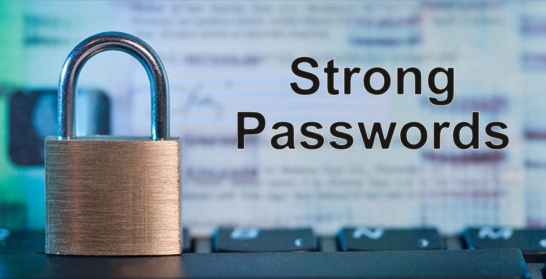
In the world where we use the internet to manage our fridge and dishwasher along our bank accounts, we all need to be educated on the characteristics of a Strong Password. Your password is all that protects your information and at the end your life from cyber criminals.
This post talks about recommendations and guidelines on how to securely maintain and manage passwords.
A Strong Password is defined as a password that is reasonably difficult to guess in a short period of time either through human guessing or the use of specialized software.
A Strong Password should:
- Be at least 8 characters in length.
- Contain both upper and lowercase alphabetic characters (e.g. A-Z, a-z).
- Have at least one numerical character (e.g. 0-9).
- Have at least one special character (e.g. ~!@#$%^&*()_-+=).
A Strong Password should not:
- Spell a word or series of words that can be found in a standard dictionary.
- Spell a word with a number added to the beginning and the end.
- Be based on any personal information such as user id, family name, pet, birthday, etc.
The following are several recommendations for maintaining a Strong Password:
- Use strong and unique passwords for each account.
- Use passphrases instead of passwords.
- Use a password manager to organize and remember passwords for each account.
- Enable multi-factor authentication (MFA) where possible.
- Don’t save financial or sensitive information to accounts.
- Don’t use the ‘remember me’ or auto-fill features for websites to save your information.
- Don’t share personal information on social media that could compromise your account security questions (like the name of the street you grew up on).
- Do not share your password with anyone for any reason.
- Change your password upon indication of compromise.
- Do not write your password down or store it in an insecure manner.
Most people use sticky notes to keep their password. To build a strong first line of defense, consider trying something more cyber safe. A password manager will help you save time, you’ll never lose a password again, it is important to choose a good password manager:
- Make sure it supports your devices.
- Find a manager that can stand alone.
- Understand where your data is stored.
- Consider your budget.
- Does is have multi-factor authentication?
At the end, we wish you’d use strong passwords: watch this video and share it with your beloved ones.
Would you like to learn more about our services? Email [email protected] or call 289-803-9730. We would be happy to share more details about our self-service or fully managed eDiscovery services!





